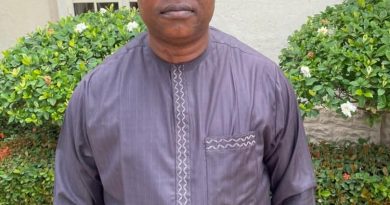NCS Launches Handbook on Renewable Energy Equipment Import, Export Procedures
NCS Launches Handbook on Renewable Energy Equipment Import, Export Procedures
By Alabidun Shuaib AbdulRahman
The Nigeria Customs Service (NCS) has taken a significant step towards facilitating responsible trade and improving compliance in the renewable energy sector with the formal launch of a new Handbook on Import and Export Procedures for Renewable Energy Equipment.
The event, held on July 29, 2025, at the NCS Headquarters in Abuja, marked the culmination of a collaborative initiative between the NCS, the European Union (EU), the German Embassy, and the Deutsche Gesellschaft für Internationale Zusammenarbeit (GIZ).
The Comptroller-General of Customs (CGC), Adewale Adeniyi, described the handbook as a “living document” that will be regularly updated to reflect evolving technologies, international best practices, and government policies.
READ ALSO: ICPC, CDCFIB Pledge Collaboration in Tackling Systemic Corruption
“With Nigeria’s increasing investment in renewable energy infrastructure, Customs has a responsibility to ensure that legitimate trade in this sector is facilitated efficiently and securely,” Adeniyi said.
“This handbook addresses past classification and clearance challenges, offering clarity to importers, exporters, and officers.”
The CGC noted that the move supports the Federal Government’s broader objectives under the Nigeria Energy Transition Plan (ETP), which seeks to achieve net-zero emissions by 2060 while improving energy access for millions of Nigerians.
He acknowledged the technical and financial support of international partners, describing the collaboration as a “model of institutional synergy that benefits both trade and the environment.”
Inga Stefanowicz, Head of the Green and Digital Economy at the EU Delegation to Nigeria, applauded the Service’s dedication to reforms and compliance. Karin Jansen, Head of Cooperation at the German Embassy, highlighted Germany’s continued interest in strengthening bilateral cooperation with Nigeria, particularly in areas of green energy and trade facilitation.
Marcus Wagner, Country Director of GIZ Nigeria and ECOWAS, praised the CGC’s leadership and congratulated him on his recent election as Chairperson of the World Customs Organisation (WCO) Council.
The new handbook is expected to serve as a vital reference for Customs officers, freight forwarders, renewable energy companies, and other stakeholders operating across Nigeria’s borders.
It provides step-by-step guidance on documentation, tariff classifications, exemptions, valuation, and procedures specific to solar panels, batteries, inverters, wind turbines, and other clean energy components.
The initiative aligns with global commitments such as the Paris Agreement and the African Continental Free Trade Area (AfCFTA), positioning Nigeria as a regional hub for green trade and sustainable logistics.




